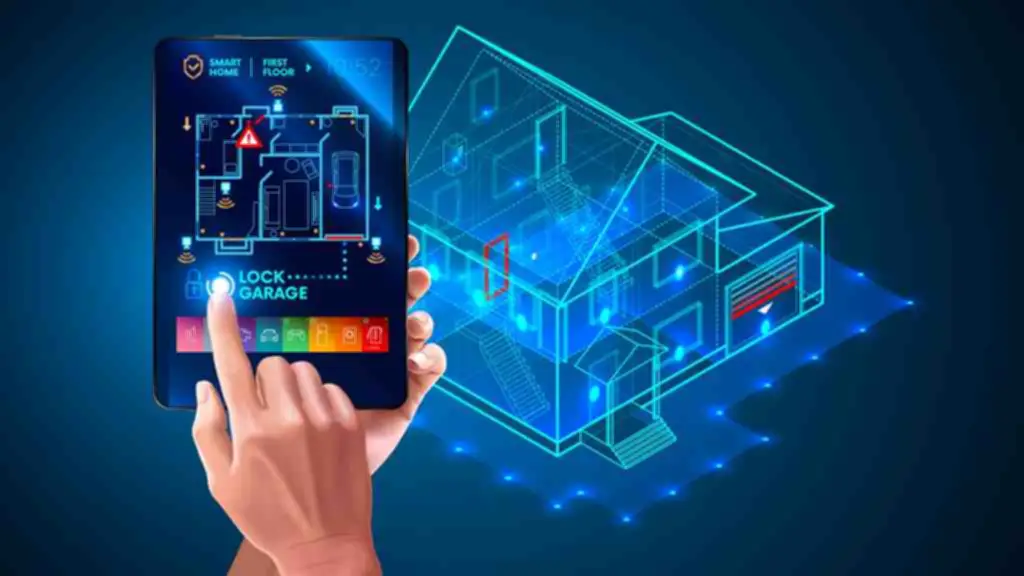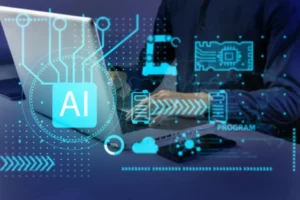10 Types of Software Development

Have you ever thought about how software is created? When communicating with friends or exchanging photographs, you use programs. The same thing happens when you switch your PC to play games, compose business emails, or check the calendar. All these goods are related to various types of software development, which is becoming increasingly important in today’s society. It has formed the backbone of most modern firms and is a crucial driving force in business and technology.

What is software development?
Software development is a complex, iterative process that requires a deep understanding of the problem. It is a set of steps to be accomplished before a concept can be converted into a successful product launch. The requirements, conception, planning, implementation, testing, and maintenance analysis phases make up the creation process.
The outcome is determined by cooperation and management. The specialists are chosen individually for each project, taking into account the relevant abilities and specializations. Full-stack or back-end developers include engineers, programmers, designers, testers, and others.
In order to guarantee that the final product satisfies the demands and expectations of its target audience, the development team works in tandem with partners and customers. To become a professional in one of these professions, you must first understand the many forms of software creation. Let’s have a look at the most popular categories instead.

We are confident that we have what it takes to help you get your platform from the idea throughout design and development phases, all the way to successful deployment in a production environment!
Types of software development widely used
Depending on the product being created, development can take many different shapes. It is a highly technical process involving numerous tools, techniques, and approaches to develop an application or system. The goal is to create modern solutions that satisfy customers’ demands and solve difficulties. The following sections will introduce the ten most common types of software development.
Regardless of your chosen field, staying up to date on the newest technology and trends is critical. This will allow you to keep ahead of the competition while developing more efficient software solutions.
Web development
If you’re reading this, you’re probably using a smartphone, tablet, or PC to surf the web. What you’re seeing now is the product of a web development team’s efforts.
Modern websites are not just bits of code that display data. APIs (Application Programming Interfaces) enable websites to offer new functionalities, which might be a mini-game, an interactive menu, or something else.
To be good in web development, you must be familiar with HTML, Javascript, Django, C/C++, ASP.NET, PHP, Python, and other relevant technologies. It is not essential to distribute your attention over all of them and become a jack of all crafts but a master of none. You could be an expert developer in one programming language, which is sufficient.
Mobile development
Do you recall mobile phones from a decade ago? Contrast them with current gadgets. Technology has advanced significantly, creating additional types of software development. Mobile development, commonly known as “application development,” is hot. The industry entails the development of software for mobile devices such as iPhones, Android phones, tablets, and anything else relevant to the subject.
You can make anything. These might range from basic mobile games such as “Snake” to complicated financial applications. The only limit is your creativity.
Swift, Objective C, HTML5, Java, and mobile operating systems such as iOS and Android are all necessary. Knowledge of databases such as SQL and Oracle will help design and manage creative solutions for apps. Again, understanding all of these is optional to be a successful mobile application developer.

Data science
In recent years, there has been significant discussion concerning the usefulness of data. If you need to figure out what to do with it, it’s pointless. You may apply your skills to numerous software engineering disciplines if you are a data scientist. A company’s data science department contributes to its overall business performance. This field is also utilized to create AI software that can “learn appropriately”.
A successful specialist is familiar with C/C++, MATLAB, Python, databases, and data visualization tools. Data science developers must also have extraordinary problem-solving abilities.
Application development
The phrase “programming basis” is commonly used to describe application development. The whole software creation life cycle, which spans from application idea and design to full-stack coding, testing, and maintenance, is under the control of developers. Depending on your level of skill, you can work with Windows, Mac, or Linux.
Many skills are required to construct an application, but the fundamentals include Java, C/C++, VB.NET, and Python as a full-stack language. Additionally, familiarity with software design patterns, industry best practices, databases, networking, and security is required for full-stack engineers.
Back-end development
When you use a website or application, the front end is what you see visually. The back end runs all processes in the background and houses the website’s logic, databases, APIs, etc. Back-end development is a more sophisticated domain in which professionals may construct the technical element of the software development project as well as its interface.
There’s much to learn, including Java, (my)SQL, Oracle, dBase, Python, and C/C++. Investigate databases and data storage systems like MySQL, MongoDB, and Redis.

AI development
AI developers create and build artificial intelligence (AI) systems and applications. They specialize in software systems and algorithms that allow computers to think and act like humans. These sophisticated systems are created by developers using a combination of mathematics, computer science, and engineering.
AI experts frequently collaborate with data scientists and engineers to build complicated systems. They should be well-versed in databases, computer languages, machine learning, and natural language processing. To guarantee the entire stack process is fast and correct, a successful developer has to keep staying in touch with colleagues and stakeholders and generate and maintain documentation for additional types of software development.
API development
If you were paying attention, you would have noticed that we previously discussed APIs or Application Programming Interfaces. These are programs created by a single group of developers that employ standard techniques, tools, and processes that other groups may use to create their software.
To become an API professional, you must have good coding skills. Begin with learning coding languages such as Java, Python, and C++. It would be best if you also were conversant with web programming, as most APIs are web-based.

Embedded systems development
Embedded system development is becoming more common as the number of internet-connected devices increases. In this field, you’ll focus on software engineering for embedded devices like Arduinos. It is formatted specifically for the operating system of your computer or other device.
To begin a career as an embedded system developer, you must be familiar with Embedded C, Assembler, Python, Arduino, Java, and other programming languages.
Security system development
Everybody has heard about hacking. Security is at the top of the priority list in the IT sector. Testers and cyber-security developers collaborate to uncover flaws in safety systems and secure the data of the organizations they deal with.
Once a cyber-security developer has created software to secure the company’s assets and information, testers attempt to breach the system and uncover weaknesses. This complicates the task of genuine hackers while ensuring sensitive data security.
The needed skills and expertise are determined by the systems with which you must interact. Security software developers should be familiar with the following:
- authentication
- authorization
- encryption
- integrity
- access control
- and secure code
Among other types of software development, cybersecurity is emerging as new challenges arise for the IT industry.
Cloud computing
Cloud computing is getting more widespread in the world of software creation. It will undoubtedly play a significant role in the future of technology. Almost everyone with a computer or a smartphone has heard of cloud storage programs. This is how cloud computing jumps into our everyday lives. OneDrive, GitHub, and other services are examples.
Java, Google’s Go!, XML, Erlang, and other programming languages are necessary. Begin by researching several cloud systems, such as Amazon Web Services, Google Cloud Platform, and Microsoft Azure.

We have presented the ten primary forms of software development and a brief overview of the methods and skills involved. However, this is only the top of the iceberg. The market is constantly changing, and new varieties emerge to fill customers’ needs.
Software engineering is critical to modern organizations because it provides them with the applications, tools, and technology they need to compete. With a growing number of types of software development, the area is becoming more valuable, and top-tier specialists are in high demand.
We at Global Cloud Team are proud to deliver outstanding software solutions that require any type of development. Our expert engineers are here to help you construct any custom product tailored to the needs of your project. We use a client-oriented approach when working with complex tasks, adding value to the final result, and building long-term relationships with our clients around the world. Feel free to hit us up with any questions.
Top Articles
How To Choose AI Software For Your Business?
I am here to help you!
Explore the possibility to hire a dedicated R&D team that helps your company to scale product development.






